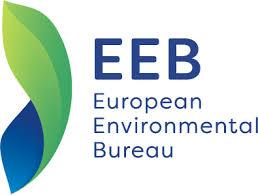
https://eeb.org/eu-2040-target-holds-line-on-climate-but-loopholes-threa...
Senior Communications Officer
Alberto Vela
In the middle of a record-breaking heatwave, the European Commission released today its long-anticipated 2040 climate target.
Following months of delays and political wrangling, the EU appears to stay the course toward climate neutrality, with a proposed net 90% emissions reduction target by 2040. However, the ‘flexibilities’ in how to achieve this goal risk resulting in zero-sum games, warns the European Environmental Bureau (EEB).
The EEB is Europe’s largest network of environmental NGOs.
Despite calls from its own scientific advisers for a domestic-only climate target, the Commission proposes allowing EU countries to meet part of the 2040 goal through carbon offsets abroad – undermining climate credibility.
This controversial shift not only weakens the European Climate Law but also delays urgent action and vital investments in clean technologies within Europe.
Mathieu Mal, Policy Officer for Agriculture and Climate at the EEB, said:
“The climate crisis doesn’t wait, and it certainly doesn’t care for accounting tricks. These so-called ‘flexibilities’ are just loopholes to delay real action. We know that the sooner we cut emissions, the greater the benefits and the lesser the damages. When faced with war or a virus, policymakers act fast, and funding becomes available. Why not for climate? We face a climate, nature, and pollution emergency, and we need our leaders to act like it. Time is of the essence.”
A target wrapped in caveats
The Commission’s plan includes:
- International carbon credits: From 2036, EU countries may count climate projects abroad towards their 2040 target – a move that amounts to outsourcing EU responsibility, with a high risk of fraud and unverifiable emissions cuts.
- Sectoral flexibilities: Countries can shift their efforts between sectors, allowing further delays in lagging areas like agriculture or transport.
- A single net target: The 90% reduction is expressed only as a net figure – failing to distinguish between actual emissions cuts and carbon removals, which are not equivalent.
This bundling of removals and reductions, combined with overseas offsets, creates a dangerous lack of transparency. It threatens to derail the EU’s commitment to reach net-zero emissions domestically by 2050 and violates the principle of doing our fair share under the Paris Agreement.
NGOs call for stronger, clearer targets
To restore climate integrity and drive real progress, the EEB urges the European Parliament and Member States to push for:
- Three separate targets: for gross emissions cuts, industrial removals, and nature-based sequestration – ensuring clarity and transparency.
- No offsets: Climate neutrality must be achieved through domestic action. Supporting third countries in cutting emissions is important, but it should be additional to Europe’s own decarbonisation efforts.
- A just and nature-compatible policy package: to ensure fairness across sectors and align climate efforts with social and environmental priorities.
ENDS
Notes for editors
- Energy scenarios show that the EU has both the means and the tools to achieve climate neutrality by 2040. It is not only technically feasible, but also a wise investment. If Europe had increased decarbonisation efforts a decade ago, it could have unlocked at least €1 trillion in direct benefits by 2030. The faster fossil fuels are phased out, the more energy security and economic gains Europe stands to achieve. See the technical summary by CAN Europe and the EEB: Building a Paris Agreement Compatible (PAC) energy scenario









